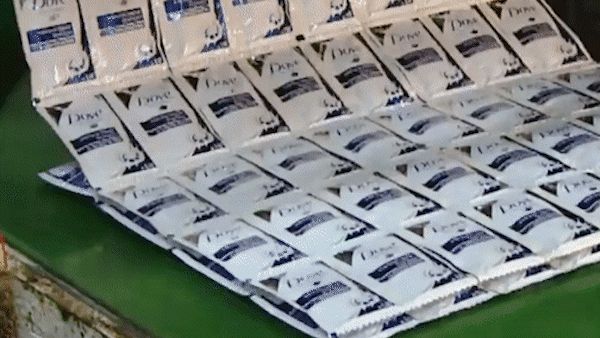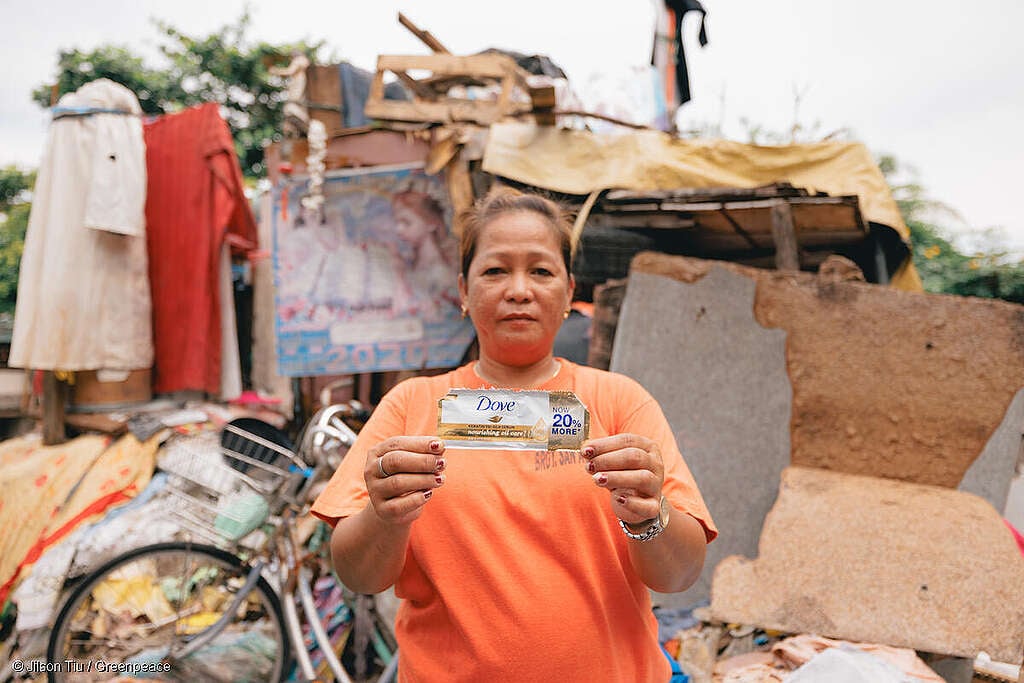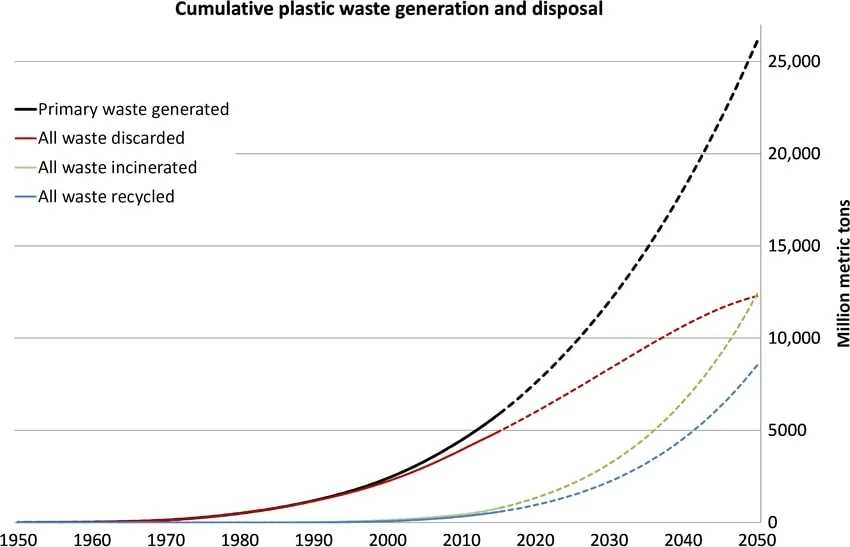Dove’s chief execs will tell you they care about women and girls. They’re spending millions on ‘Real Beauty’ campaigns to convince you that their brand is a force for good. But behind their public image lies a true story of real harm.
We all know Dove. They’re more than just a soap brand. For decades, their ‘Real Beauty’ campaigns have sold us a vision of empowerment that confronted some of the world’s most toxic beauty trends. They’ve styled themselves as the champion of women and young girls.
But behind the scenes, Dove has been fuelling a human and environmental crisis by pumping huge volumes of toxic single use plastic out into the world.
Tell Dove to stop poisoning our planet with plastic.

Dove pumps out 12,000 unrecyclable sachets every minute.
Dove are fully aware of the alternatives to single-use plastic. Yet, the harmful production continues. Every year, they’re pumping out 6.4 billion of the worst offenders, sachets – small, single use plastic packaging – onto communities in the global south. That’s 12,000 every minute! These tiny plastic sachets are nearly impossible to collect and even harder to recycle.
Dove is relentlessly polluting communities in countries like India, Indonesia and the Philippines.
Dove’s plastic waste is choking rivers and oceans, and when burnt, is leaching toxic chemicals into the air. Greenpeace activists in the Philippines have seen with their own eyes the devastating damage of Dove’s toxic plastic waste. They’ve seen plastic packaging from Dove, and their owners Unilever, jamming local waste systems, polluting neighbourhoods and waterways.

“Companies like Dove don’t care about us. They make plastic shampoo sachets that trash my community. When it floods, it’s usually because the sachets clogged our sewers.”
– Marilou Manangat, street sweeper, waste worker and a mother of 4 from Barangay San Agustin, Philippines
From India to Indonesia, Thailand to the Philippines – it’s many of the same young girls and women who Dove claim to champion who are left to deal with waste’s harmful effects.
Dove has the power to solve the plastics crisis – they just choose not to.
Without decisive action, plastic production is set to almost triple by 2050.

Cumulative plastic waste generation and disposal. Source:
Geyer, Roland & Jambeck, Jenna & Law, Kara. (2017). Production, use, and fate of all plastics ever made. Science Advances. 3. e1700782. 10.1126/sciadv.1700782. Research Gate
We have a once-in-a-generation chance to create change.
Right now countries across the world are coming together to negotiate a UN Global Plastics Treaty. This is a once-in-a-generation chance to turn the tide and finally end the age of plastic.
Dove’s owner Unilever has huge influence over the Treaty. They can lead the change by phasing out their own single use plastic and pushing for that same ambition in the Treaty. But they continue to promote a throwaway single-use model where corporate profits outweigh the human and environmental cost to our communities.
We’re not here to shame Dove or its consumers. We’re here to challenge a brand to live up to its proclaimed values. We’re here to empower those who have been let down and those who have been directly impacted by Dove’s plastic waste.
Dove say they care about ‘real beauty’? It’s time they prove it.
Nina Schrank and Anna Diski are Head of Plastics and Plastics Campaigner at Greenpeace UK.
